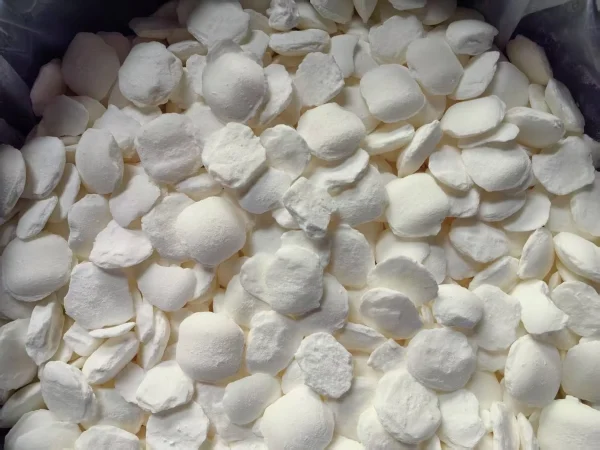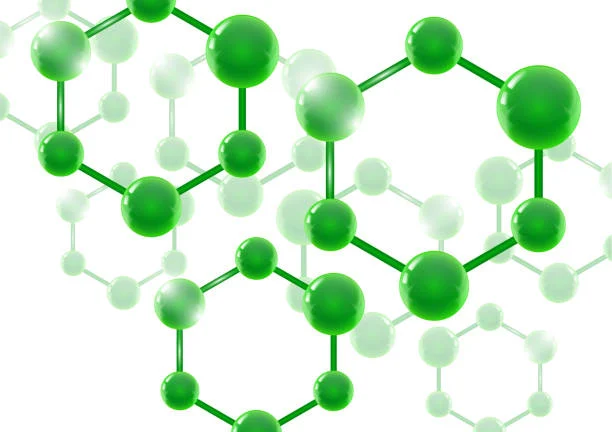
Definition of Solubility
Solubility refers to the maximum amount of a solute that can dissolve in a given amount of solvent at a specific temperature and pressure to form a homogeneous solution. It is usually expressed in grams of solute per 100 milliliters (g/100 mL) of solvent or in moles per liter (mol/L).
Solubility of Sodium Cyanide in Water
Sodium cyanide (NaCN) is highly soluble in water. At room temperature (around 25 °C), approximately 48 grams of Sodium cyanide can dissolve in 100 milliliters of water. As the temperature increases, its Solubility in water also rises. For example, at 34.7 °C, the solubility of Sodium Cyanide in water is about 82 g/100 mL.
The high solubility of sodium cyanide in water can be attributed to several factors. Sodium cyanide is an ionic compound, consisting of sodium cations (Na⁺) and cyanide anions (CN⁻). Water is a polar molecule, with a partial positive charge on the hydrogen atoms and a partial negative charge on the oxygen atom. When sodium cyanide is added to water, the polar water molecules interact with the ions in sodium cyanide. The positive ends of water molecules are attracted to the cyanide anions, and the negative ends are attracted to the sodium cations. This strong ion - dipole interaction between the ions of sodium cyanide and water molecules allows sodium cyanide to dissolve readily in water.
Moreover, the dissolution process of sodium cyanide in water is an exothermic process. According to Le Chatelier's principle, for an exothermic dissolution process, increasing the temperature will shift the equilibrium of the dissolution reaction towards the direction of the solid (undissolved) solute. However, in the case of sodium cyanide, the increase in temperature still leads to an increase in solubility. This is because the increase in temperature also increases the kinetic energy of the water molecules and the ions, which promotes the dissociation of sodium cyanide into ions and their dispersion in the water, overriding the effect of the exothermic nature of the dissolution reaction on solubility to a certain extent.
Solubility in Other Solvents
In addition to water, sodium cyanide has different solubility characteristics in other solvents:
Ethanol: Sodium cyanide is sparingly soluble in ethanol. The solubility in ethanol is much lower compared to that in water. This is because ethanol is a less polar solvent than water. The non - polar part of the ethanol molecule (the ethyl group) reduces the overall polarity of the solvent. As a result, the ion - dipole interactions between sodium cyanide ions and ethanol molecules are not as strong as those with water molecules, leading to lower solubility.
Other organic solvents: Sodium cyanide has very low solubility in non - polar organic solvents such as benzene, ether, etc. Non - polar solvents lack the ability to interact effectively with the ionic species in sodium cyanide. Since non - polar molecules have no significant charge separation, they cannot attract the sodium and cyanide ions to break the ionic bonds in sodium cyanide and disperse the ions in the solvent.
Significance of Solubility
Industrial applications
In the Gold mining industry, the high solubility of sodium cyanide in water is crucial. Gold forms a soluble complex with sodium cyanide in an aqueous solution. This soluble gold - cyanide complex can then be further processed to extract pure gold. The solubility of sodium cyanide in water allows for the efficient leaching of gold from its ores.
Chemical reactions
In chemical synthesis, the solubility of sodium cyanide in appropriate solvents affects reaction rates and yields. For example, in some nucleophilic substitution reactions where sodium cyanide is used as a nucleophile, its solubility in the reaction medium (usually a polar solvent like water or an alcohol - water mixture) determines how quickly the cyanide ion can react with the substrate. If the solubility is too low, the concentration of the reactive cyanide ion in the solution will be low, which may slow down the reaction or even prevent the reaction from occurring efficiently.
Safety and environmental considerations
Understanding the solubility of sodium cyanide is also important for safety and environmental protection. Due to its high toxicity, if sodium cyanide is accidentally spilled, its solubility in water means it can quickly dissolve and contaminate water sources. The soluble sodium cyanide can then release toxic hydrogen cyanide gas in the presence of acids or under certain environmental conditions. Knowledge of its solubility helps in designing appropriate containment and remediation strategies in case of spills.
In conclusion, sodium cyanide has high solubility in water, which varies with temperature, and much lower solubility in other solvents such as ethanol and very low solubility in non - polar solvents. This solubility property plays a significant role in its Industrial applications, chemical reactions, and safety - related aspects.
- Random Content
- Hot content
- Hot review content
- Booster(Detonating insensitive explosives)
- Sodium bisulfite 99% High Quality Factory Supply
- Industrial Acetic Acid 99.5% Colorless Liquid Glacial acetic acid
- Food Grade Heavy Light Precipitated Calcium Carbonate Powder Granular 99%
- Food Grade Ammonium Sulphate
- Pharmaceutical Grade Zinc Acetate
- Lithium chloride, 99.0%,99.5%
- 1Discounted Sodium Cyanide (CAS: 143-33-9) for Mining - High Quality & Competitive Pricing
- 2Sodium Cyanide 98% CAS 143-33-9 gold dressing agent Essential for Mining and Chemical Industries
- 3China's New Regulations on Sodium Cyanide Exports and Guidance for International Buyers
- 4International Cyanide(Sodium cyanide) Management Code - Gold Mine Acceptance Standards
- 5China factory Sulfuric Acid 98%
- 6Anhydrous Oxalic acid 99.6% Industrial Grade
- 7Soda Ash Dense / Light 99.2% Sodium Carbonate Washing Soda
- 1Sodium Cyanide 98% CAS 143-33-9 gold dressing agent Essential for Mining and Chemical Industries
- 2High Purity · Stable Performance · Higher Recovery — sodium cyanide for modern gold leaching
- 3Sodium Cyanide 98%+ CAS 143-33-9
- 4Sodium Hydroxide,Caustic Soda Flakes,Caustic Soda Pearls 96%-99%
- 5Nutritional Supplements Food Addictive Sarcosine 99% min
- 6Sodium Cyanide Import Regulations & Compliance – Ensuring Safe and Compliant Importation in Peru
- 7United Chemical's Research Team Demonstrates Authority Through Data-Driven Insights













Online message consultation
Add comment: